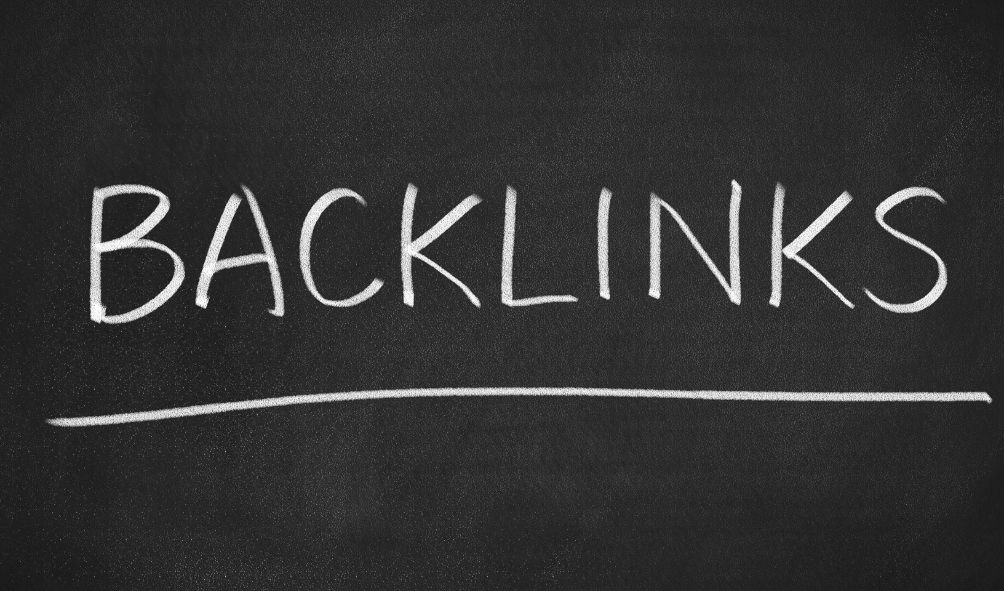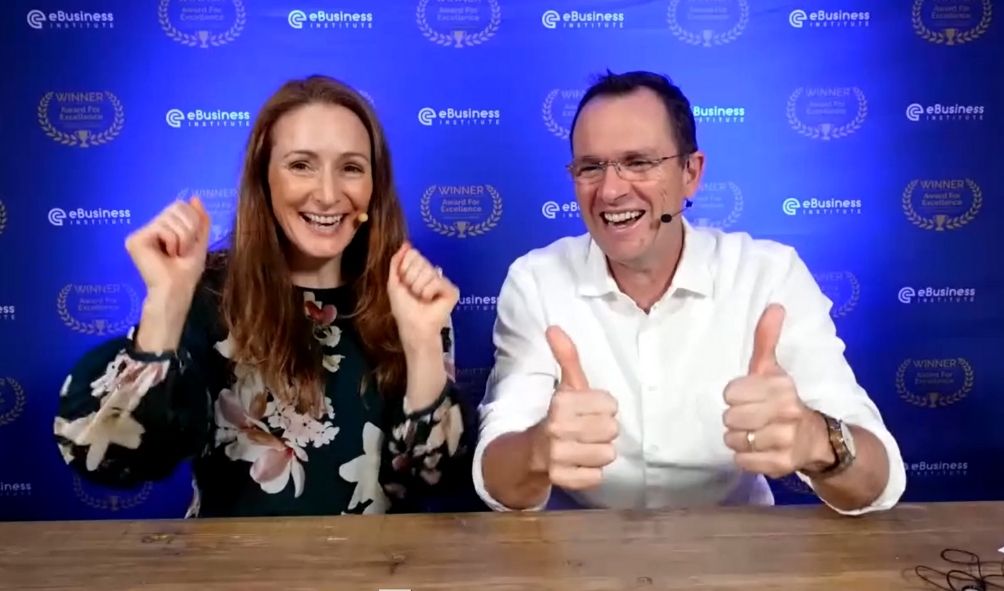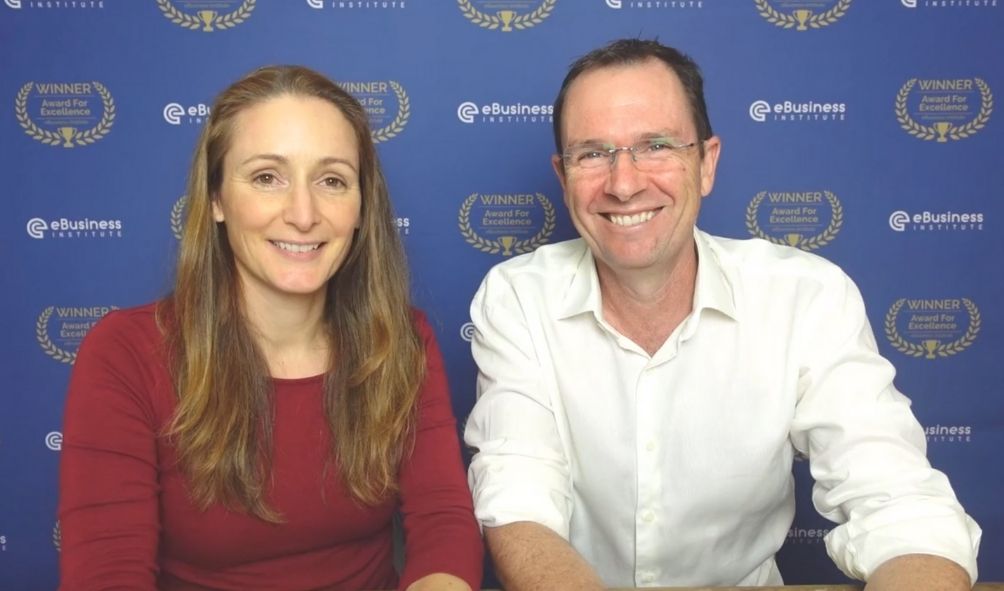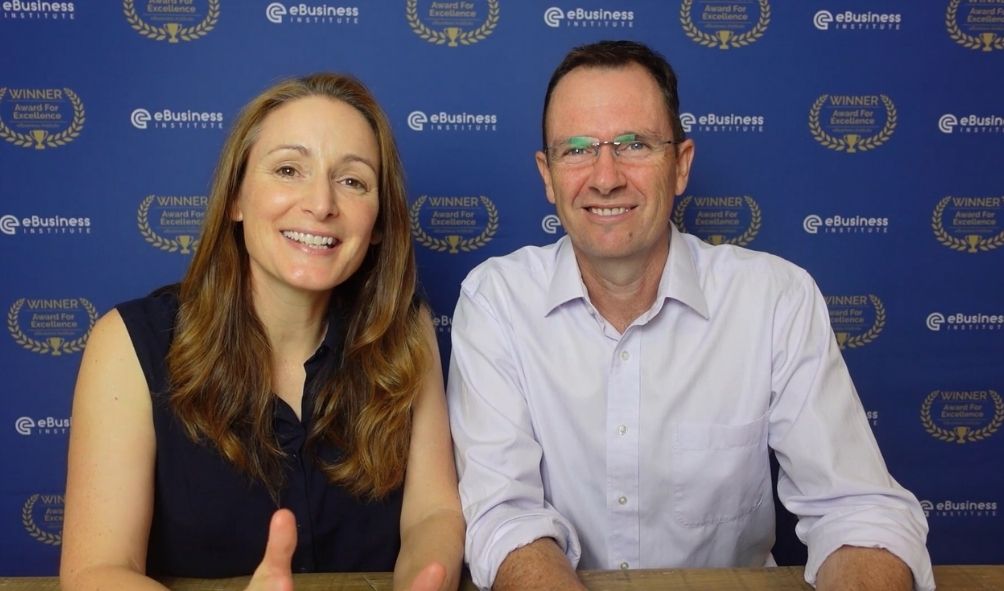Buying websites for profit isn’t always smooth-sailing. There are some common mistakes that can be very costly, both for your time and for your investment return.
But, regardless of whether you’re a newbie investor, or a seasoned website buyer like us – if you know how to avoid these mistakes, you can start to build yourself a very nice portfolio of digital assets.
So, what we wanted to do today is share with you the 4 biggest lessons that we teach our students. And these are also the lessons that we’ve personally experienced ourselves. You’ll get to hear our real-life examples of where we made these mistakes when we’ve bought different online assets. Pay special attention to these so you can learn how to make good buying decisions.
Watch the video or read the transcript below.
Liz Raad: Hello, digital investors. You’re here with Liz and Matt Raad. And today, we want to do something a bit different. We want to reveal the four biggest mistakes that we’ve made when buying websites for profit. We wanted to give you some insights into the journey and also into the big lessons that we learned when we first started investing in websites and online assets.
Matt Raad: And we’ll also talk about when we started to step it up a bit. We’ll talk about the buy prices that we’re spending on these sites.
We know that some of you are already at this level in your journey, so we want you to see these mistakes. Over the decade that we’ve been doing this, these are classic rookie mistakes that we’ve seen our beginner students make. So, we hope that by reading this article, you’re going to learn to avoid these mistakes.
So let’s start. What’s number one, Liz?
Lesson #1 – Check The Backlinks
Liz: We’ll demonstrate this mistake by telling a story. This was a really interesting website buy that we were making. It was a really great website and was in the education niche. It was generating leads for colleges and for universities etc. It was an awesome site and had an awesome affiliate product too. This was an affiliate program you could only get into by invitation, so we were essentially buying our way into this affiliate program.
When buying large websites for profit – always use an escrow service
We negotiated the website and we’d agreed on USD $80,000. We transferred the money into escrow. So an important lesson here is to use an escrow service. Now, I know a lot of brokers have their own escrow services now. Back when we did this, there wasn’t that. So we used escrow.com, but now Flippa and Empire Flippers, and all the brokers will hold money in escrow. So we’d transferred the $80,000 into escrow. And we were just heading into that due diligence period.
Matt: Now, if you’re new to this, you may not know what escrow is. Basically, it’s just like when you buy real estate, the money is held in a secure account by a third-party intermediary. And when both the buyer and seller agree on the deal, then the money’s released. So your money’s nice and safe. So, as Liz just said, that is definitely lesson number one.
Negotiating a 14-day due diligence period allowed time to check the backlink profile

Liz: Yes, but we needed to have that due diligence period though. So we had negotiated a 14 day due diligence period. And while we’re in that period, we were actually doing some deeper research into the site’s backlink profile. During this research, one of the things we noticed was some interesting backlinks. And actually, during this due diligence period, the traffic started to drop. And we were thinking, “Okay, what’s going on here?”
There was actually a Google update happening at the time, so we asked the seller, “What’s happening? Have you paid for any backlinks? How have you done these backlinks?” And he actually was very open and admitted it. He said, “I actually paid for a service. I paid to get backlinks from these particular sites.” Now these were sites that at the time, Google was particularly targeting.
Matt: There was nothing untoward, from the seller’s viewpoint.
When buying websites for profit, make sure you ask questions and talk to the seller
Matt: And so, he could see we knew a lot about SEO. It was really important at this point to keep the line of communication open with him.
Liz: So, the lesson here is to ask the question.
Matt: That’s right. Be proactive with the seller. Get talking to them. If you’re not sure, most sellers will tell you what they’ve done. And in this case, he had done some paid backlinking, which is not really a problem in itself. But as Liz said, Google had done a big update at the time (and this happens every so often from Google).
There was a very well-known link buying service out there that Google was publicly targeting because they didn’t like how you could buy links from this service. And that’s pretty much it. It was a very simple reason why this website was affected. So, we were very torn, do you remember that Liz?
Liz: Yes. It was still a great site.
Matt: We were thinking, “You know what? I can easily turn this around.”
Liz: We could renovate that, but it now wasn’t worth $80,000 that we had negotiated. So, we had to say to the seller, “No, we’re not going to go ahead at that price.”
The seller decided he didn’t want to keep negotiating on it. So, we needed to get our money back. Now, one of the things. We’re in Australia, so we’d uploaded the funds through to US dollars. And of course, the exchange rate goes up and down during that time, so….well…darn it!
Be very clear that this website purchase is the right deal for you

Matt: Maybe this is a lesson from the universe so that we can teach our readers. The two-week period that we used to complete our due diligence is when the Aussie dollar really dropped. So we actually lost a few grand. Out of the $80,000 we had held in escrow, it was near $5,000. It was a big foreign exchange.
This has also happened to us with our bricks and mortar businesses and manufacturing etc. But normally, you’re hedging over six months or so. This was the first time it had ever happened to us with a website where, in a space of 14 days, you lose $5K just on doing due diligence, basing it on the Forex. So, what’s the lesson there?
Liz: But in the end, it was worth it though. We are very, very clear about what is the right deal for us. So even though that process cost us money, if we’d gone ahead with the deal and tried to keep going to rescue it, it probably would have cost us way more than that.
So, I think one of the lessons here is, you have to be really clear about what you want and the strategy. And when you do your negotiations, you’re clear about your end price and that’s it. Don’t make excuses for yourself and change your mind, thinking, “I’m already in, so I might as well…”
“You need to be clear about what’s good value for you, and what you believe you can do with that website.” – Liz Raad, eBusiness Institute
Matt: And the other thing that’s really important was we learnt so much from that deal. And what was really interesting was the access that we got to that affiliate program. So, we lost some money on the Forex, but we call that the cost of doing business. To us, that’s not a lot in the big scheme of things compared to bricks and mortar businesses.
But what we gained out of this process was a relationship with the manager of this private affiliate program. And it was very lucrative. So it opened the door for us in a roundabout way into a very exciting part of our journey online with affiliate marketing and things like that.
Liz: So that’s the thing. It’s swings and round abouts. If you’re going to invest anything – sometimes you’ll pick shares that go down, or you’ll pick a property that doesn’t quite get to where you want it to go, etc. Or sometimes there’s a lot of fees etc. that goes to lawyers and accountants etc. So, you have to be aware that when you start stepping up to the five and six figure deals, there will be expenses, and there will be times when things like that happen.
But our final lesson from all that is make sure you really check your backlinks. You’ve got to check the backlinks of the site because in content sites (and sites that rely on SEO), the backlinks are very important. And we’ll do another video on a bit more depth about that later.
Lesson #2 – Stick To Your Strategy
Liz: So let’s move on to our second biggest (and most expensive) mistake when buying websites for profit.
Matt: And I think any of you that have been with us for a few years, I’m sure you’ve heard us teach this concept. And now you’re about to see why, because you’re going to see where we first broke our own rules.
Liz: Yes. So I’ll tell you the story. We found this online business, and we got into negotiations with the guy. And he was a young guy. He had a young family, and he built this thing on the side. And the site just got too big, too fast for him. It was really growing phenomenally fast.
And so it was too big and too fast for him. And so we thought, “Awesome, there’s huge opportunity here.” We negotiated a really good price with the sell, where we were going to pay it off within months. We were very happy with that part of the deal.
When Buying Websites for Profit, Look for Leveraged, Passive Sites
However, it was an app. And this was the first app we’d ever looked to invest in. But if you know our strategy – we’re buying passive websites for leverage. We want sites that take very little work to maintain, and that our content team can write content for. We post the content and it’s monetized by leveraged things like advertising and affiliate programs etc. So we don’t have to do much to maintain and grow those websites.
Now, we broke that rule because we were so excited about the growth on this one. We thought, “Oh yeah, we’ll try an app.”
Matt: This was definitely not our strategy of buying passive websites for profit. It was so far from that. It was very lucrative, made lots of money, but it was not a passive website. It did not fit our strategy.
Liz: Plus, technically, once you get into apps, you’ve got to have a dev team. You’ve got to have developers. There are constant app updates in the app store. You’ve got to constantly maintain that. There were constant things breaking. And you’re also dealing with different mobile phones. It would work on one type of mobile, but not on another etc.
And man…the maintenance!! With our passive websites, we would look at our stats monthly. But with this app, we had to keep up with it (and the updates) daily. It was intense.
Matt: Yes. For us it was intense. I remember those days. Having to look at it, log in every day to check on things. And when we say an app, we mean this was a full-blown app on the Apple Store and Google Play.
So again, this is not being passive. Normally, when we’re buying websites, we buy simple websites that we can work on ourselves. We can easily move things around, and we can renovate them themselves. But this is an app on the App Store, and you’ve got to comply with Apple and Google.
And we were hiring app developers They were wonderful and incredibly talented. But it was just full on working with these guys. These were teams from India and Pakistan. They were brilliant, but lots of work was involved.

Only buy websites for profit that fit your investment model and your team
Liz: So, lots of work and we broke our own rule. One of our biggest rules is that we go in with a strategy. We know what we’re looking for, we know what fits our model (i.e. our way of business), and we know it fits our team.
But with this deal, we bought something that was outside the expertise of our team. This meant we had to hire a new team for that particular business. So I think every time you go in, every time you buy any kind of business or investment, you need to look at your own experience and your own team (or the people around you who you’ve already got). And also, think about what you want out of it. That’s one of our biggest rules.
Whenever we talk to someone who’s about to buy a website, we always say, “What’s the big picture here? What do you actually want to achieve? And is this website taking you towards that goal? Or is it actually taking you away from that goal? What do you ultimately want?”
So that was our lesson number two is stick to your strategy. Be clear about what you want.
Matt: And I just realized why there’s another lesson in that. While we did steer away from our usual strategy. Because it was such a bargain, we negotiated what we thought was a great deal, which was around $70,000.
Liz: Well, it made us a huge amount of money.
Matt: Yes. It was making about $700 a day, which was great. For a $70,000 investment, we were pretty happy with that. But we bought ourselves a job. So don’t get blinded by your greed of the deal. We got a little bit overexcited on that one.
Lesson #3 – Keep It Simple
Liz: Lesson number three. This actually follows on very well from number two.
Matt: It certainly does!
Liz: A mistake that we often see our students make (and people in the marketplace) is that they buy sites that are beyond their technical capability.
So we’ve had another site recently where we did this. This was a site that wasn’t on WordPress. Now we do have people on our team who are able to deal with websites that aren’t on WordPress. This website was custom programmed.
We got the renovation done. But it took six months where really, if it was on WordPress, it would have taken six weeks, or even six days…. And, this is one that I mainly worked with the team, because it was so technical.
Liz: I sidestepped that one!
Matt: Yes, Liz is the technical one, but she sidestepped it over to me.
So, this website purchase was about $50,000. And I honestly believe that if it had been a normal WordPress site that I could work on with my usual team, I think we could have quadrupled it. I was really excited. I’ve been involved in the niche before, and I’m really good at it.
Avoid Buying Websites for Profit that are Bespoke or Custom Coded
Matt: What’s really interesting, is that this website turned out to be totally passive. It ticked every box. We’ve had that for about two years, and it’s made us a $2,000 a month – month in, month out. So on the surface, it looks great.
But the mistake is, the renos that we needed to do to really drive it, literally took six months. And what’s even worse was it was custom coded. So we had to hire the original techie who built the site from the previous seller. If I wanted anything done, it would take 24 hours to get a hold of him. He’s an expert, and he worked on all sorts of sites like this. But he was really hard to get hold of and we couldn’t easily hire other techies to work on this custom coded theme. And it’s interesting. We’ve got clients who have done exactly the same thing and I watch them, it’s doable.
Liz: This is the thing. It’s doable. You can do it.
Matt: But the renos always took a long time to do the things we wanted to do, which was very frustrating.
Always think of the end game whenever buying websites for profit

And then of course, what you’ve got to think about is the end game. So, when it comes time to sell this site, we’ve got the same problem. We’ve got to explain to the new buyer, “Look, you need this particular techie.” It takes a bit of time and manoeuvring, and then you’re not going to be able to program that stuff yourself.
So the lesson is, don’t go there because it’s going to be hard to resell it. We made the mistake of focusing on, “Hey, we can handle this. We’ve got a team. It’s okay.” But we should’ve been thinking of what we teach, which is, think way ahead. When I come to sell this thing, it’s going to be harder because I’ve got to find a buyer who can handle this sort of site.
We just recently sold it off at a good price. I think we sold it for $70,000, plus we’d made $2,000 a month from passive income. I’m pretty happy overall. It was passive. We didn’t really have to do that much to it. But it should have been a much bigger deal, and it could potentially have been very difficult to sell. But luckily it was very passive, so it sold straight away.
So, the lesson here is: Don’t go into bespoke coded websites. Don’t be buying something way more complex than what you can handle technically, or that your team can handle. But in particular, avoid anything that is bespoke, hard coded. As soon as you hear that, run a mile. If it’s bespoke, hard coded, it’s going to be harder for you down the track to sell it, no matter how good the website is.
Lesson #4 – Check The Accounts!
Liz: Now let’s move on to our lesson number four. And this is one that we see all the time. It happened to us just once, right? That was the one time….
Matt: It’s the classic mistake that a lot of you reading will make. And we repeatedly teach this to our students.
Liz: We’ve seen lots of students where this has happened. So pay special attention to this. When you buy a website for profit (or you’re looking at one to buy), you must make sure that you can get accounts that go with the site. Accounts such as the affiliate providers, or the advertising providers. Wherever the money’s coming from, you’ve got to make sure that you can get that same money coming in from the website.
I don’t know how many times we’ve had students say to us, “Oh, I bought it, but I can’t put Ad Sense on it because I don’t have an Ad Sense account.” Or they buy a website that has some sort of affiliate offer on there. And they find later that that affiliate offer’s either expired, or that you can’t get an account with that affiliate program, or that there was some special deal going on.
Communicate with the seller to make sure any special affiliate offers come with the site
And that’s what we found ourselves. For one of the websites we bought, there was one particular affiliate offer attached, and it was an “under the table” deal with the supplier. But when we took over the site that supplier said, “Oh no, I’m not going to do the same deal for you.” Now, it wasn’t the end of the world because there were other offers going on there. But it was very annoying.
Matt: It was a shock to the system. This was a $30,000 website, and it was a good website. We could renovate it to get the traffic up. And if we’d been able to keep that particular affiliate offer, we would have made a lot more money off it.
So this was an annoying mistake on our behalf. But we do see this a lot out in the community. So again, I think it relates back to our lesson number one – make sure you’re communicating with the seller. And if they’ve got any special affiliate deals, get them to put you in contact with the affiliate manager.
Liz: And speak to them directly.
Matt: Yes. Even if they’re in another country or even if it’s just by email. Just say, “Hey, just to confirm, you’re going to keep that offer going with me.”
Liz: Now, the cool thing about this is even if that does happen to you, there’s so many other affiliate offers out there that are available. There’s so much opportunity now and it’s growing even further.
Learn More About These 4 Mistakes When Buying Websites for Profit
Matt: So it’s particularly important that when you’re getting more intermediate and you’re ready to step it up into the five and six figure deals – these are the 4 main lessons you need to remember. We’ve seen them happen to other newbie students, and as you’ve seen today through our own personal examples, we’ve even experienced these ourselves – Guilty!
Liz: So hopefully you can get out there now and buy some websites for profit and make really good buying decisions.
If you want to see more content like this (and to hear how other students have been buying websites for profit), subscribe to the Matt and Liz Raad YouTube Channel.
Or you can watch our free masterclass if you want to learn more about how to buy websites for profit and avoid these common mistakes.




